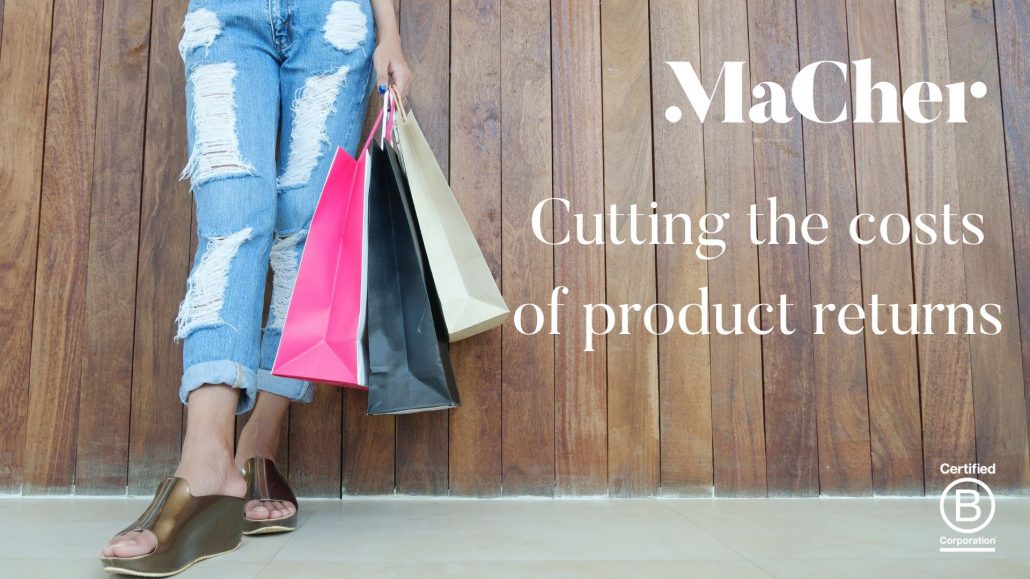More than half of clothes bought online are now returned – at a huge cost to business and to the environment. MaCher found a way to help one client cut product returns by 20%.
The cost to retailers and e-commerce for the returns of goods is significant and rising. E-commerce return rates have grown by 95% over the past five years and return deliveries cost businesses over $550 billion in 2020.
During the pandemic lockdowns, shoppers turned to the internet in droves. However, many people now commonly purchase clothing online with the firm intention of returning part of their order. A study in 2020 found that this is true for high fashion items (60%) and for shoppers between the ages of 21 and 44 (44%).
When items are returned, they must be inspected by staff and then either cleaned and re-shelved, donated or incinerated. In the US alone, returns create 5 billion pounds of landfill waste and 15 million tonnes of CO2 emissions annually. This is equivalent to the amount of trash produced by 5 million people in a year.
In academic theory, a free gift can reduce return rates
Academics at Seoul National University found that when a free gift is present the return rate of goods drops significantly:
- 16% of people who received a free gift returned a product vs 43% of people who did not.
- A person is roughly three times more likely to return a purchase if a gift with purchase (GWP) is not present.
- When customers were able to select their free gift (vs. receiving a mystery gift) the return rate dropped even further.
Their research showed that people are less likely to return the item because they feel an increased sense of ownership and attachment to a product they have bought and perceived loss if they were to give the item up. This is particularly true when the involvement in the product is high.
A free gift reduce can reduce return rates in the real world too -the MaCher test
For years, MaCher and their clients have been testing academic marketing theories, trying to find ways to improve ROI, increase loyalty and reduce waste.
In fall 2021, MaCher created a thoughtful GWP for an apparel and beauty client. The product was offered at the point of sale as an incentive for reaching a certain price threshold. We tested the impact of receiving a GWP on the rate at which customers returned the products they had bought.
The results found that after 100k+ transactions, the product return rates dropped 20.10%.
Our client believes that even when factoring in the cost of the GWP and promotion, they made significant financial savings, while the lower return rates would also have saved thousands of delivery journeys!
Keep testing, keep improving
We’ve since been trialling other iterations of the academic research to try and isolate the kinds of factors that make a difference in reducing return rates even further. We’ve been thrilled to test these academic studies with our products, reducing returns saving money for our clients, and helping to cut waste and emissions in the process. Contact MaCher to find out more.
MaCher – Make Better Things to Make Things Better


